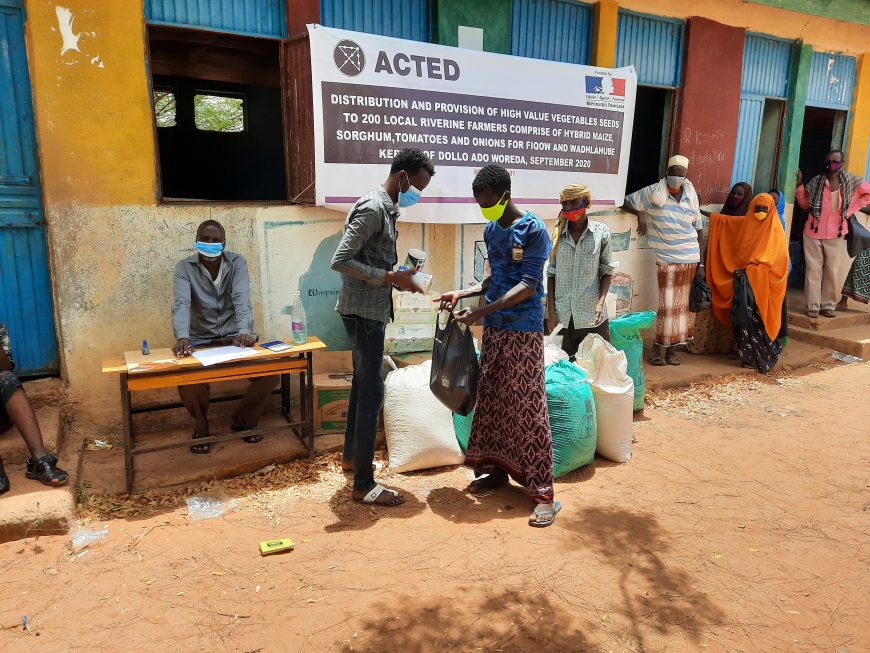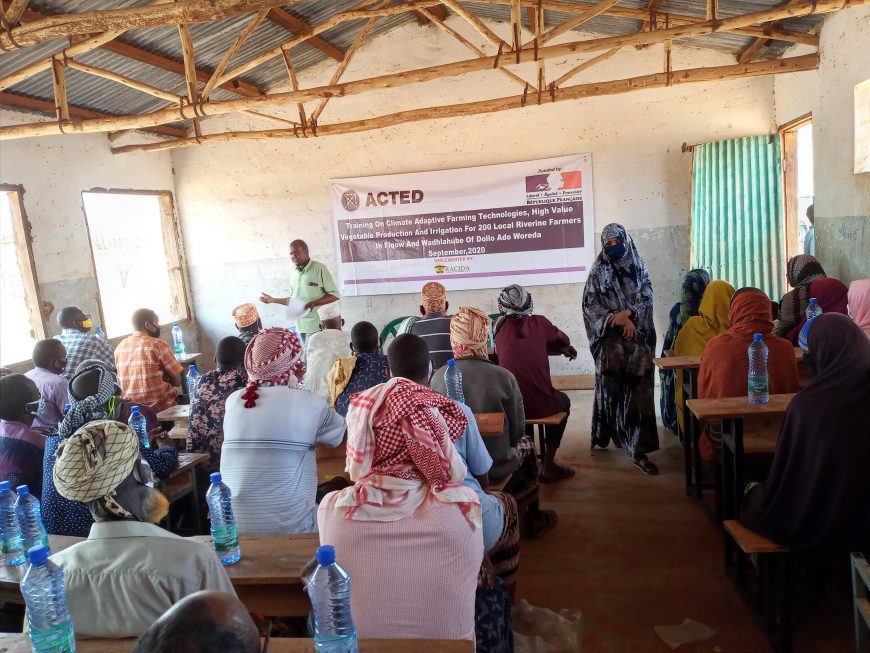Ethiopia's climatic history is repeating itself once again. Severe droughts are hitting the country whose main source of income is agriculture. The population, faced with a lack of resources and difficulty in cultivating its land, is struggling to feed itself.
The severe droughts, recurrent conflicts forcing a great number of people into displacement has disrupted both food markets and prices, especially in Somali region. Thousands of residents in Ethopia’s Somali region have also been displaced because of the COVID-19 pandemic which escalated the hunger and food shortage among the residents.
In 2020, Ethiopia had to face even more difficult challenges with the COVID-19 pandemic and the locust infestation.
Through its action, ACTED aims to tackle the lack of material resources of the population both in terms of means and agricultural material to adapt to the drastic climatic changes. With the support of The French Embassy in Ethiopia, ACTED was able to bring a quick response to the different challenges in the Somali region for a period of 8 months.
Increasing food security and resilience in the Somali region
The pastoral communities in the region started suffering from low rainfall, resulting in harsh living conditions and depletion of their livestock and source of livelihoods. One of the main challenges the pastoral community were facing were the seeds that didn’t adapt to the excessively dry climate. ACTED provided farming inputs support including vegetable seeds and drought resistant seed varieties. This action was complemented by trainings on agricultural best practices and extension services in Fiqow and Wadluhuba.

ACTED has contributed to increase the food security and resilience of 1,091 households by strengthening the agricultural capacity of farmers in the region.
As a result of vegetable seeds and drought resistant seed varieties distributed to the farmers, they will be able to address acute food insecurity as well as restore farms and increase farm production.

In addition, farmers have been trained on a suite of irrigation topics, including reduction of irrigation, induced soil erosion, soil fertility management practices. All these trainings will help them to manage soil fertility and prevent soil erosion.